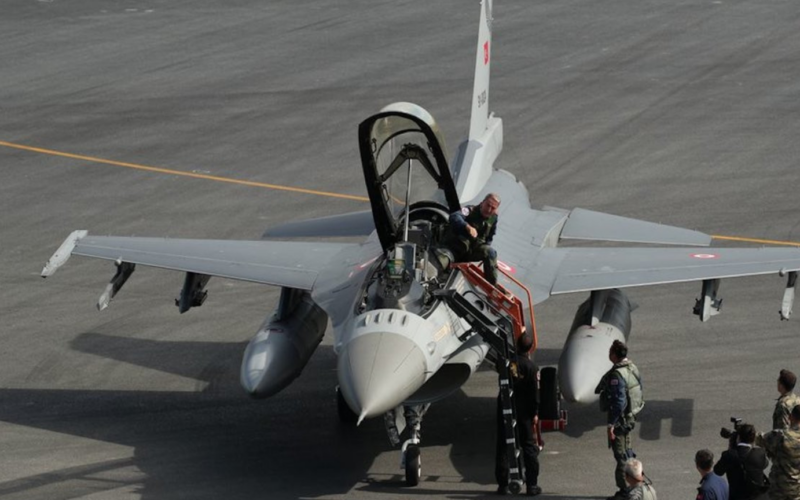In a significant diplomatic development, the U.S. Ambassador to Turkey, Jeff Flake, expressed anticipation that President Tayyip Erdogan would soon grant final approval for Sweden’s NATO membership. This key step is expected to prompt prompt Congress to endorse the $20 billion sale of F-16 fighter jets to Ankara. The interview with Ambassador Flake on Thursday shed light on the intricate diplomatic process and the subsequent implications for Turkey’s military capabilities.
Turkey’s parliament ratified Sweden’s NATO membership bid on Tuesday, marking a crucial milestone in the expansion of the Western military alliance. After a 20-month delay, this move sets the stage for President Erdogan to sign the legislation, which would then be published in Turkey’s Official Gazette.
Ambassador Flake outlined the steps following President Erdogan’s sign-off. Once the formal ratification document is received in Washington, the U.S. State Department will promptly notify Congress about the proposed $20 billion F-16s sale.
Ambassador Flake expressed confidence that the process would unfold rapidly, stating that there is no reason for Turkey to delay. He anticipated that once the conveyed information reaches Washington, congressional notification of the F-16 sale would swiftly follow.
President Erdogan’s signature on the legislation and the transmission of the instrument of accession for Sweden to Washington are crucial next steps. Flake highlighted the immediacy of the congressional notification once these actions are completed.
Both President Erdogan and U.S. Congress members had linked Turkey’s backing of Sweden’s NATO bid with the approval of the F-16 sale. This strategic linkage was underscored by President Joe Biden’s letter to key Capitol Hill committees, expressing his intention to initiate the formal notification process upon Ankara’s completion of Sweden’s NATO accession.
Sweden’s bid to join NATO in 2022, driven by security concerns in response to Russia’s invasion of Ukraine, faced delays due to Turkish objections over perceived support for groups designated as terrorists. Ambassador Flake emphasized that Sweden had addressed Turkey’s security needs during this period.
Ambassador Flake acknowledged varying opinions within the U.S. Congress, with some members emphasizing the importance of Sweden’s NATO membership before proceeding with the F-16 sale. However, he highlighted the broader recognition of Turkey’s participation in NATO and the interoperability benefits associated with the F-16 modernization.
The unfolding diplomatic dynamics between the U.S., Turkey, and Sweden signal a pivotal moment in regional security and military collaboration. The linkage of NATO membership approval with the F-16 sale underscores the strategic considerations at play. As the diplomatic process progresses, the implications for Turkey’s defense capabilities and its role within NATO will come into sharper focus, shaping the geopolitical landscape in the region.








